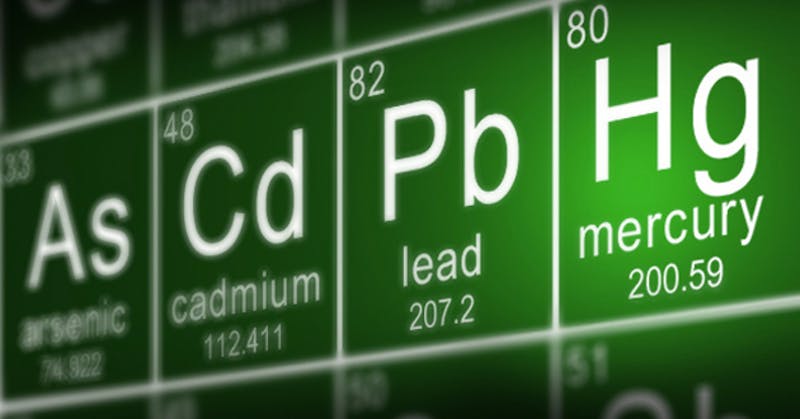Heavy Metals & Toxic Elements Testing
The testing of heavy metals and toxic elements in food and feed is crucial to ensure product safety, compliance with regulations, and protection against potential health risks. Heavy metals such as lead (Pb), mercury (Hg), cadmium (Cd), and arsenic (As) can accumulate in the environment through various pathways and enter the food chain either directly or via contaminated feedstocks. The presence of these elements at levels exceeding acceptable limits can pose serious threats to human health, including neurotoxicity, carcinogenic effects, and organ damage.
Our laboratory offers comprehensive testing services for heavy metals and toxic elements in a wide range of food products and feed ingredients. We employ state-of-the-art analytical techniques that are sensitive, accurate, and reliable, ensuring precise measurements even at trace levels. The methods we use are compliant with international standards such as ISO 17025, ICP-MS (Inductively Coupled Plasma Mass Spectrometry), and AAS (Atomic Absorption Spectroscopy).
The testing process typically involves the following steps:
- Sample Collection: Proper sampling techniques are crucial to ensure representativeness of the sample.
- Sample Preparation: Samples may undergo digestion using strong acids or microwave-assisted procedures before analysis.
- Analytical Techniques: We utilize advanced instruments like ICP-MS and AAS for accurate quantification.
- Data Interpretation: Results are compared against regulatory limits set by relevant authorities such as the FDA, EU Commission, and WHO.
The results of our testing provide valuable insights into potential contamination sources and help food manufacturers and producers take corrective actions to maintain product safety. Compliance with regulations is not only a legal requirement but also essential for building consumer trust and maintaining market reputation.
Our laboratory adheres strictly to ISO 17025 accreditation standards, ensuring that all tests are conducted in a controlled environment with rigorous quality control measures. This commitment ensures consistent and reliable results across multiple batches of samples.
| Applied Standards |
|---|
| ISO 17025: Accreditation requirements for the technical competence of testing and calibration laboratories |
| ASTM E1623-18: Standard Practice for Inductively Coupled Plasma Mass Spectrometry (ICP-MS) Analysis of Metals in Liquid Samples |
| EN 14905: Determination of cadmium, lead and mercury in foodstuffs by atomic absorption spectrophotometry (AAS) |
| FDA 21 CFR Part 11: Electronic Records; Electronic Signatures |
The precision and accuracy of our testing methods are validated through regular inter-laboratory comparisons, ensuring that the results obtained are consistent with those from other accredited laboratories.
For food manufacturers and producers, these tests provide critical information to identify potential risks early in the supply chain. This proactive approach helps prevent costly recalls and reputational damage while fostering long-term trust with consumers.
Applied Standards
| Applied Standards |
|---|
| ISO 17025: Accreditation requirements for the technical competence of testing and calibration laboratories |
| ASTM E1623-18: Standard Practice for Inductively Coupled Plasma Mass Spectrometry (ICP-MS) Analysis of Metals in Liquid Samples |
| EN 14905: Determination of cadmium, lead and mercury in foodstuffs by atomic absorption spectrophotometry (AAS) |
| FDA 21 CFR Part 11: Electronic Records; Electronic Signatures |
The laboratory strictly adheres to these standards, ensuring that all testing procedures are conducted in a manner that meets the highest quality and reliability benchmarks.
Quality and Reliability Assurance
- We use advanced ICP-MS and AAS instruments for accurate quantification of heavy metals and toxic elements.
- Regular inter-laboratory comparisons ensure consistency with results from other accredited laboratories.
- Compliance with ISO 17025 standards guarantees technical competence in testing and calibration.
- Data integrity is maintained through the use of electronic records as per FDA regulations.
The combination of these factors ensures that our heavy metals and toxic elements testing services are among the most reliable and accurate available in the market today. Our commitment to quality and reliability is reflected not only in our equipment but also in our rigorous adherence to international standards and best practices.
Competitive Advantage and Market Impact
The ability to provide precise, reliable heavy metals testing services sets our laboratory apart from competitors. By offering a comprehensive suite of tests that cover all major toxic elements, we ensure that clients receive complete information about their products' safety profile.
This capability is particularly beneficial for companies involved in:
- Product development and innovation
- Supply chain management
- Risk assessment and mitigation strategies
In an increasingly regulated market, our services help clients stay ahead of regulatory changes and consumer expectations. By identifying potential contamination early on, we enable companies to make informed decisions that enhance product safety while minimizing the risk of costly issues down the line.
The competitive advantage extends beyond just compliance; it also includes enhanced brand reputation and customer trust. Companies that demonstrate a commitment to quality and safety are more likely to build long-term relationships with consumers who value transparency and integrity in their food and feed products.





